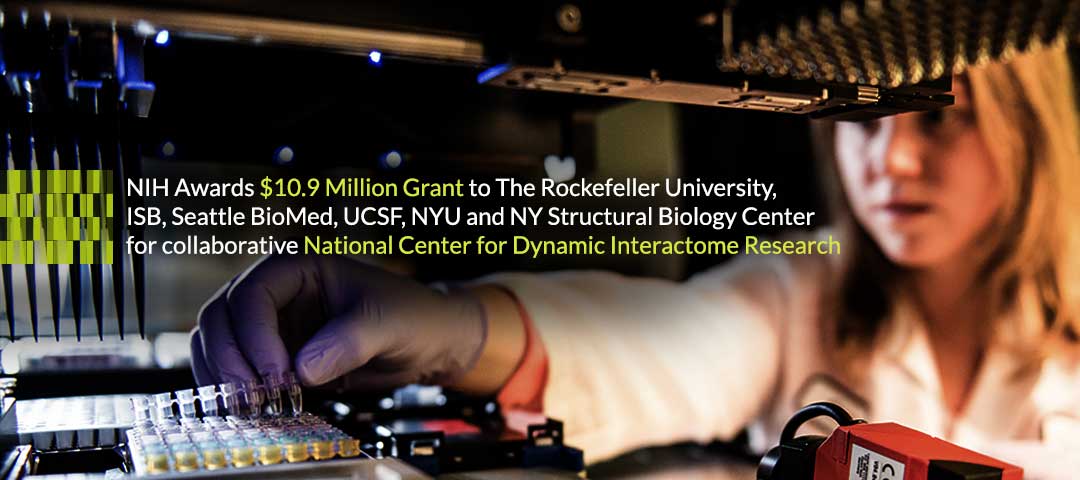New $10.9 Million Grant from NIH
 isbscience.org/news/2014/08/01/new-10-9-million-grant-from-nih/
isbscience.org/news/2014/08/01/new-10-9-million-grant-from-nih/
The NIH's National Institute of General Medical Sciences has issued a Biotechnology Resource Grant of $10.9 million over five years to the National Center for Dynamic Interactome Research (ncdir.org) project. This project is a collaboration among The Rockefeller University, Institute for Systems Biology, Seattle BioMed, University of California at San Francisco, New York University and New York Structural Biology Center. Michael Rout, of The Rockefeller University, is the Program Director/Principal Investigator. (ISB/Seattle BioMed's John Aitchison is a co-investigator.) Project description:
"Most of the properties of living cells are mediated by the ever-changing interactions of their component macromolecules. Pathogenic alterations in these interactions mechanistically underlie diseases such as viral infection and cancer. Much better tools are needed to reveal these interactions. The Center is creating new and useful tools to elucidate the dynamics of macromolecular interactions, and to spread these tools amongst the biomedical community. The Center will empower the community to assemble the kinds of detailed, dynamic representations of the interactions in the cell that will help elucidate the principles underlying all cellular processes. These tools will enable researchers to delve into the molecular details of biological processes with unprecedented facility. The resulting insights will impact all areas of medical research, from fundamental discovery to pharmaceutical development."





